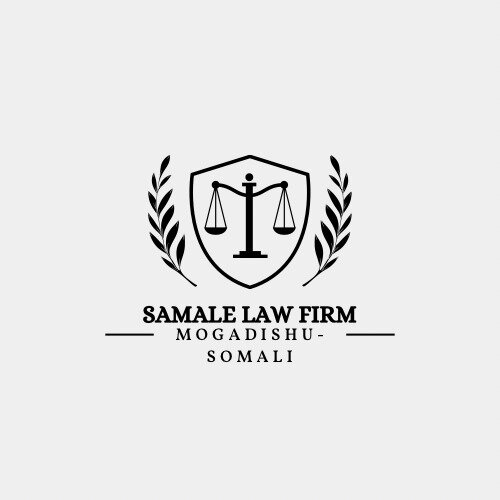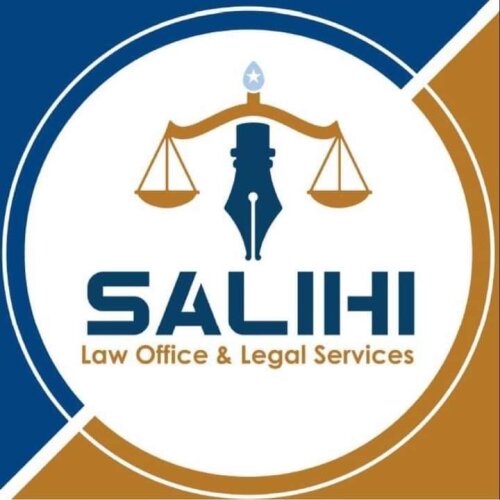Best Contract Lawyers in Somalia
Share your needs with us, get contacted by law firms.
Free. Takes 2 min.
Or refine your search by selecting a city:
List of the best lawyers in Somalia
About Contract Law in Somalia
Contract law in Somalia is a part of the civil code which governs the formation, execution, and enforcement of agreements between parties. While Somalia is in the process of rebuilding its legal system, contract law is essential for fostering private, business, and governmental interactions. Contracts in Somalia must comply with both Islamic principles and civil system frameworks to be considered valid and enforceable. The Somalian contract law is influenced heavily by Sharia law, colonial-era laws, and modern legislative developments.
Why You May Need a Lawyer
Contractual matters can be complex and fraught with potential legal pitfalls. Here are some situations where legal assistance might be necessary:
- Drafting and Reviewing Contracts: To ensure clarity, compliance, and protection against potential disputes.
- Contract Disputes: When disagreements arise regarding the terms or execution of a contract.
- Business Transactions: For mergers, acquisitions, or partnership agreements.
- Property Transactions: When buying, selling, or leasing property.
- Employment Agreements: Clarifying terms of employment or addressing breaches.
Local Laws Overview
The legal framework in Somalia regarding contracts encompasses several important aspects:
- Formation: A valid contract generally requires an offer, acceptance, and consideration, along with the capacity of the parties.
- Enforcement: Contracts must abide by official codes and Islamic principles. Verbal contracts may be considered valid but are harder to enforce.
- Dispute Resolution: Disputes can be resolved through local courts, Sharia courts, or customary clan-based systems, depending on the case.
- Governing Laws: The combination of Sharia, Italian and British colonial statutes, and recent legislative reforms.
- International Agreements: Contracts involving international parties may necessitate adherence to international standards and treaties that Somalia has entered into.
Frequently Asked Questions
1. What makes a contract legally binding in Somalia?
A contract is legally binding if it includes an offer, acceptance, consideration, and the capacity of the parties, is not forbidden by Sharia, and is documented in a manner that shows intent.
2. Can contracts be verbal in Somalia?
Verbal contracts can be recognized, but are often difficult to enforce due to the lack of written evidence, increasing the importance of witnesses.
3. How are contract disputes resolved?
Disputes can be settled in civil courts, Sharia courts, or through customary mediation practices, depending on the preference and context of the involved parties.
4. Are there special considerations for business contracts?
Yes, business contracts should consider both local laws and international regulations, particularly for foreign investments and trade agreements.
5. What role does Sharia play in contract law?
Sharia emphasizes fairness, prohibits interest-based contracts, and influences many aspects of contractual agreements in Somalia.
6. How can I ensure my contract is enforceable?
Ensure it is comprehensive, meets legal requirements, is signed by all parties, and does not contain terms that violate local laws or Sharia principles.
7. What types of contracts are commonly used in Somalia?
Common contracts include those related to employment, sales, leases, partnerships, and service delivery.
8. Can foreign entities enforce contracts in Somalia?
While foreign entities can enforce contracts, the process may be complex, requiring adaptation to local legal standards and possibly international arbitration.
9. Are there limitations on who can enter a contract?
Capacity is required, so parties must be of legal age and mental competence, not restricted by guardianship or other legal limitations.
10. How does the government regulate contracts?
The government regulates contracts primarily through civil codes and specific legislations affecting various industries, guided by Sharia principles.
Additional Resources
For further assistance, consider these resources:
- Somali Ministry of Justice: Provides resources and information on legal procedures and reforms.
- Local Bar Associations: Offers referrals to qualified legal professionals specializing in contract law.
- Non-governmental Organizations: That offer legal aid and counseling to individuals and businesses.
- International Investment Bodies: For related concerns on trade and investment laws.
Next Steps
If you require legal assistance in contract matters, here are the steps you can take:
- Consult a Lawyer: Look for professionals with expertise in Somali contract law.
- Gather Documentation: Compile all necessary documents and evidence pertinent to your case.
- Research your Options: Understand alternative dispute resolutions such as mediation or arbitration if litigation seems daunting.
- Stay Informed: Keep abreast of any changes in the legal landscape that might affect your contractual agreements.
Lawzana helps you find the best lawyers and law firms in Somalia through a curated and pre-screened list of qualified legal professionals. Our platform offers rankings and detailed profiles of attorneys and law firms, allowing you to compare based on practice areas, including Contract, experience, and client feedback.
Each profile includes a description of the firm's areas of practice, client reviews, team members and partners, year of establishment, spoken languages, office locations, contact information, social media presence, and any published articles or resources. Most firms on our platform speak English and are experienced in both local and international legal matters.
Get a quote from top-rated law firms in Somalia — quickly, securely, and without unnecessary hassle.
Disclaimer:
The information provided on this page is for general informational purposes only and does not constitute legal advice. While we strive to ensure the accuracy and relevance of the content, legal information may change over time, and interpretations of the law can vary. You should always consult with a qualified legal professional for advice specific to your situation.
We disclaim all liability for actions taken or not taken based on the content of this page. If you believe any information is incorrect or outdated, please contact us, and we will review and update it where appropriate.
Browse contract law firms by city in Somalia
Refine your search by selecting a city.










